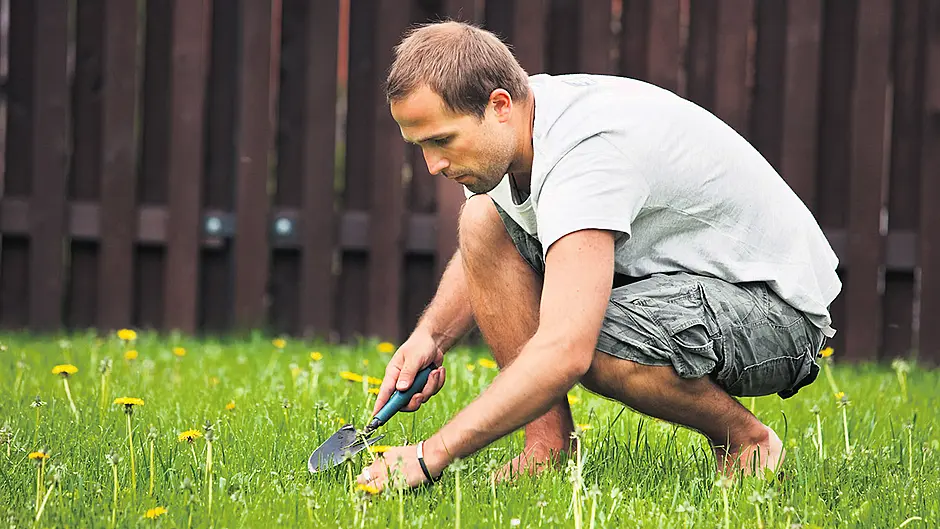HERE’S a story about acceptance. A man bought a house and planned to create a beautiful garden. He worked hard and followed all the instructions in gardening books, but dandelions kept appearing on his lawn. When he first saw them, he thought simply pulling them out would suffice, but it didn’t.
So, he used weedkiller. It worked initially, but the dandelions returned. He worked harder, pulling them out and using weedkiller. They were gone – or so he thought.
The next summer, they came back. The man thought it must be the type of grass he used for his lawn, so he spent lots of money and got a new lawn put down.
It worked, he was delighted and began to relax in his lovely garden. But then they returned – again.
A friend told him the source of the dandelions was other people’s gardens, so he called to all his neighbours and convinced them to kill their weeds. They did, but the dandelions returned again.
After three years of hard work and endless research, he was exasperated. He wrote to the Department of Agriculture – surely they could help?
Months later, an official-looking envelope arrived. At last! Excited, he tore open the envelope and read the letter: ‘Dear Sir. We have considered your problem and have consulted all our experts. After careful consideration, we think we can give you very good advice. Sir, our advice is that you learn to love those dandelions.’
That story is related by psychologist and dialectical behaviour therapy (DBT) creator Dr Marsha Linehan in her book Building a Life Worth Living. Dr Linehan often tells this story to her clients. ‘My idea is to get them to the point where they can say, “I know this is a dandelion”’, she says. ‘In other words, a problem that isn’t going to go away easily, so the best way forward is to work with it as best you can.’
Being open to reality
DBT, which is a modified form of cognitive behavioural therapy (CBT) often used with people who find it hard to regulate their emotions, emphasises the importance of what Marsha Linehan calls radical acceptance. What does she mean by radical acceptance? Radical acceptance, she says, ‘is complete and total openness to the facts of reality as they are, without throwing a tantrum and growing angry’.
People sometimes recoil when the word ‘acceptance’ is used, because they think acceptance equates to approval. However, accepting the reality of a situation doesn’t mean you approve of it. If you feel you have been wronged – for example, being wrongly blamed for something at work, being let down by someone you thought was your friend, your partner cheating on you, or various other unfortunate situations – then it’s easy to stew on the injustice of it all. ‘He should not have done that to me!’, ‘This should not be happening’, ‘It’s not fair’, ‘Why me?’ – such sentiments are perfectly natural, but it doesn’t help to ruminate.
When you ruminate like this, you’re resisting, you’re fighting. It’s understandable, but it’s not helpful.
If you decide to move towards acceptance, you might say: “I don’t like this, I don’t approve of this, but it happened. I can’t change that. It is what it is.”
The above sentence makes it clear that acceptance is not the same as approval. One of Dr Linehan’s clients preferred the phrase ‘radical acknowledgement’ to ‘radical acceptance.’ That’s fine – they amount to the same thing.
Secondly, remember that acceptance is not equivalent to surrender – far from it. To change a situation, you must first accept it. Imagine a work colleague threw you under a bus (metaphorically speaking!) to save his or her skin. You can torture yourself by ruminating on the injustice of it all, but that’s only keeping you stuck. Truly accepting a situation means coming to terms with the aspects of it that we can’t change, notes Marsha Linehan, which allows you to ‘liberate the bottled-up energy’ and make a plan to change things for the better.
‘Pain is pain. Suffering, agony, are pain plus non-acceptance’, she says. ‘Radical acceptance transforms suffering into ordinary pain’.
That’s why it always pays to ask: am I dealing with a dandelion?






